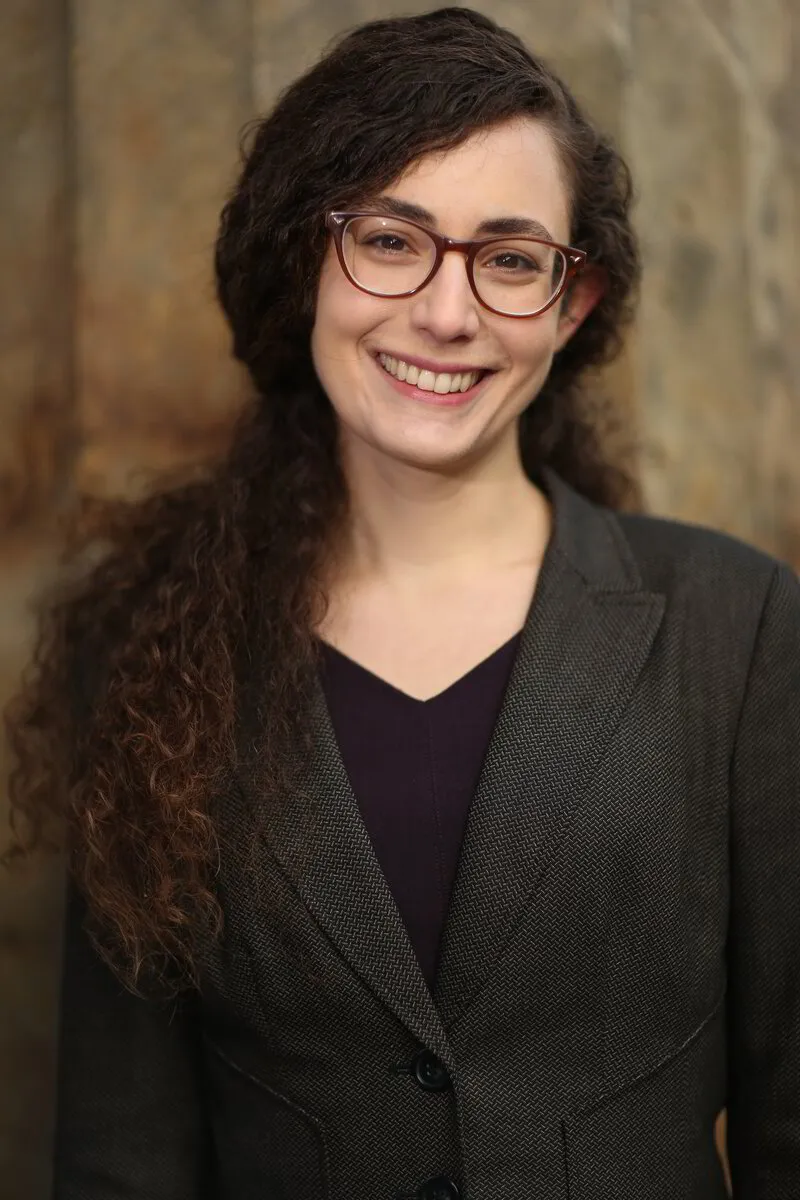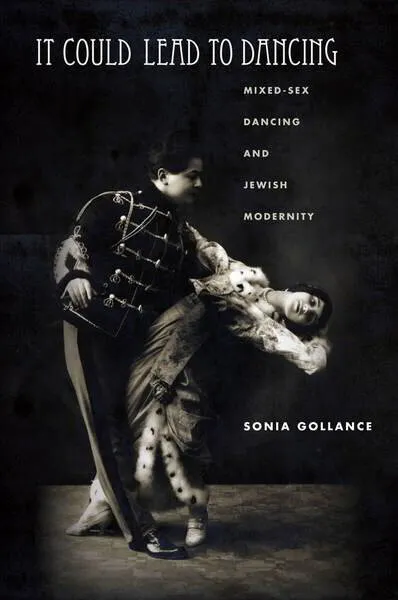SONIA GOLLANCE | Lecturer in Yiddish
University College London
ABOUT
Sonia Gollance is a scholar of Yiddish Studies and German-Jewish literature whose work focuses on dance, theatre, and gender. Her first book, It Could Lead to Dancing: Mixed-Sex Dancing and Jewish Modernity, was published by Stanford University Press in May 2021. A National Jewish Book Awards finalist and winner of a Choice Award for Outstanding Academic Title, this book was released in paperback in October 2023.
In September 2021, she joined the Department of Hebrew and Jewish Studies at UCL as Lecturer (Assistant Professor) in Yiddish. Previously she taught at the University of Vienna, The Ohio State University, and the University of Göttingen (Germany). She received her Ph.D. in Germanic Languages and Literatures from the University of Pennsylvania.
RESEARCH INTERESTS
Dr. Gollance's research is broadly concerned with the ways dance, theatre, gender, and the body mediate Jewish experiences of modernity. One of the leading scholars of European Jewish dance, her work engages with the emerging field of literary dance studies from a Jewish Studies perspective. Her first book considers transgressive dancing as a way of understanding the dramatic cultural changes Jews negotiated in the period between the Enlightenment and the Holocaust. Several articles and translation projects reexamine the contributions of Yiddish women writers, with a particular focus on Yiddish plays by women. Her work has been supported with research fellowships from institutions including the Center for Jewish History (USA), Association for Jewish Studies (USA), Hadassah-Brandeis Institute (USA), Österreichischer Austauschdienst (Austria), YIVO Institute for Jewish Research (USA), Franz Rosenzweig Minerva Research Center for German-Jewish Literature and Cultural History (Israel), and Fulbright Commission (USA). Her peer reviewed articles have appeared in Austrian Studies, Dance Chronicle, Eighteenth-Century Studies, In geveb: A Journal of Yiddish Studies, Jewish Social Studies, The Leo Baeck Institute Yearbook, and Prooftexts. She has also co-edited journal special issues of Feminist German Studies (with Kerry Wallach) and In geveb (with Joel Berkowitz and Nick Underwood).
PUBLIC ENGAGEMENT
Dr. Gollance is the Managing Editor of Plotting Yiddish Drama, an initiative of the Digital Yiddish Theatre Project to create a digital database of Yiddish play synopses. In this capacity, she has published short works of public scholarship about different aspects of the Yiddish dramatic repertoire. Her other writings for a general audience concern topics such as Jewish mixed dancing, pedagogy, workplace harassment in Yiddish literature, and the European refugee crisis. Dr. Gollance has given talks about her research at culture festivals such as KlezKanada, KlezNorth, the Yiddishland Pavilion of the Venice Biennale, and Yiddish New York, and has taught and led Yiddish folk dancing in university, festival, and community settings. She has also introduced films on topics related to her fields of expertise at the Philadelphia Jewish Film Festival, Lund University (Sweden), and for the "Oy, Revolt!" Yiddish film series she curated at the University of Chicago. She is currently involved with efforts to develop a Yiddish theatre troupe in London, and was a co-organizer of the 2024 "Season of Yiddish Theatre" series (a collaboration between UCL, the London Jewish community centre JW3, and the Yiddish Café Trust). This series included a rehearsed reading of her translation of Tea Arciszewska's 1958 play Miryeml in March 2024 (directed by Leo Doulton), which was followed by an April 2024 rehearsed reading at the YIVO Institute for Jewish Research in New York (directed by Caraid O'Brien).
Stanford University Press 2021, paperback 2023
Finalist: 2021 National Jewish Book Award (USA) in Modern Jewish Thought and Experience
Winner: 2022 Choice Award for Outstanding Academic Title, American Library Association
Dance offers crucial insights into debates about Jewish emancipation and acculturation. While traditional Jewish law prohibits men and women from dancing together, Jewish mixed-sex dancing was understood as the very sign of modernity—and the ultimate boundary transgression. You can learn more or order here.
Want to order from Europe? You can do so here.

